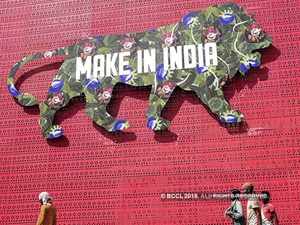
The self-procurement norms are aimed at promoting Make in India.The government has modified public procurement norms to give maximum preference to companies whose goods and services have 50 per cent or more local content, a move aimed at promoting ‘Make in India’ and making the country self-reliant. The revised Public Procurement (Preference to Make in India), Order 2017, has introduced a concept of Class-I, II and non-local suppliers, based on which they will get preference in government purchases of goods and services.
Class-I local suppliers will get the most preference in all government purchases because their domestic value addition is 50 per cent or more. They will be followed by Class-II suppliers, whose value addition range is more than 20 per cent but less than 50 per cent.
“Class-I local supplier means a supplier or service provider, whose goods, services or works offered for procurement, has local content equal to or more than 50 per cent,” according to the revised order.
Companies with less than 20 per cent of domestic content in their goods or services will not able to participate in most of the government tenders and they are categorised as “non-local suppliers”.
“In procurement of all goods, services or works in respect of which the nodal ministry/department has communicated that there is sufficient local capacity and local competition, only Class-I local supplier, shall be eligible to bid irrespective of purchase value,” it has said.
It also said that for purchases of goods/services with an estimated value of less than Rs 200 core, global tender enquiry will not be issued except with the approval of the competent authority as designated by the Department of Expenditure.
Earlier, only local suppliers were allowed to bid for procurement orders worth less than Rs 50 lakh.
Only Class-I and II local suppliers “shall be eligible to bid in procurements undertaken by procuring entities, except when global tender enquiry has been issued,” it said.
In global tender enquiries, non-local suppliers can also participate along with Class-I and II suppliers.
The earlier order had defined a local supplier as one whose goods/services offered for government procurement had a minimum local content of 50 per cent. There was no categorisation of local suppliers.
Local content means the amount of value added in India, which shall be the total value of the item procured (excluding net domestic indirect taxes) minus the value of imported content in the item (including all customs duty) as a proportion of the total value, in per cent.
Further, it said that if a ministry or department finds that for any particular item, the definition of local content is not workable or has limitations, it may notify alternate suitable mechanism for calculation of domestic content for that product.
For verification of local content, the Class I and II suppliers shall be required to indicate percentage of local content and provide self-certification that the item offered meets the local content requirement norms.
“Concept of Class-I supplier has been introduced so that in cases where local suppliers are to be given the order, even within that group we should give first preference to the ones whose domestic value addition is significantly high.
“Basically it’s like domestic will be preferred over foreigner wherever possible. And even within domestic, Class-I will be preferred since they add more value in India as compared to Class-II,” a source said.
In general, under the Public Procurement (Preference to Make in India) Order, it was envisaged that all central government departments, their attached or subordinate offices and autonomous bodies controlled by the Government of India should ensure that purchase preference will be given to domestic suppliers.
Source: indiatimes.com

